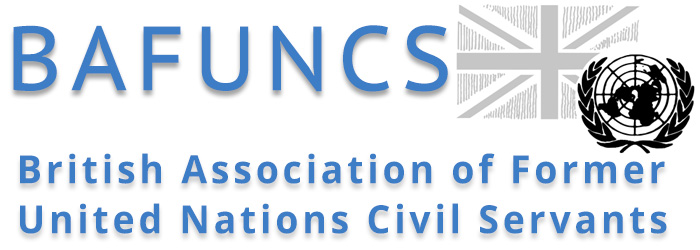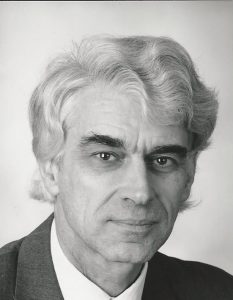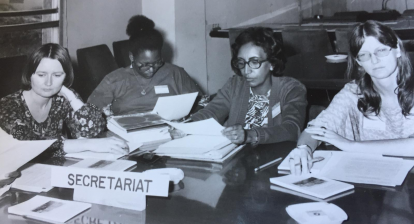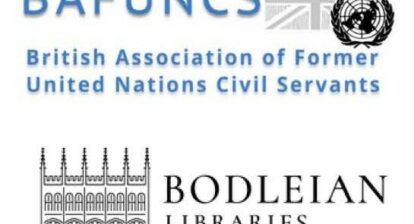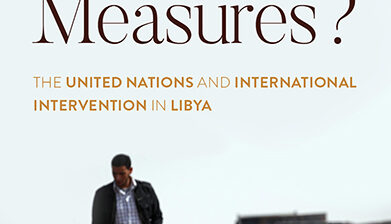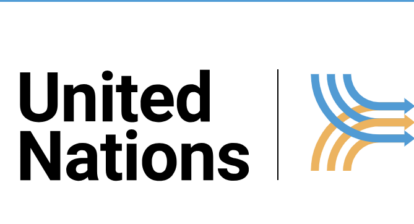That BAFUNCS can and will survive the blow of losing Michael Davies is in itself a tribute to this charming, thoughtful and talented man. No single individual has ever done more than he did for our Association. He was a most able, comprehensively-organised and good- humoured chair of the Executive Committee, a constructive Honorary Treasurer, and a determined supporter of regions in difficulties. He was also an author and co-author of recognised intellect on the institutions in which we worked.
Born in 1944, he took a Cambridge degree in Natural Sciences (Chemistry with Metallurgy) and Economics, yet made a career in finance and administration. As John Burley recalls, that combination was typical of Michael, a man of many parts. In 1965, they shared responsibilities for the Cambridge University UNA (CUUNA) with Michael handling special events. Michael concocted new ways of doing business, a sign of things to come.
Yet another of that remarkable group of JPOs mobilised in the 1960s by the then International Service Department of UNA UK, he began his UN career with UNDP in Sudan and FAO in Darfur. Unsurprisingly, FAO spotted his talent and appointed him to its Purchasing and Control branch at headquarters in Rome. In all he spent fifteen years with the organisation, including six as its Administrative Officer in Kenya, which he considered his most satisfying assignment, both from a professional and personal perspective. He showed long-lasting loyalty to the rugby club for which he played in Nairobi, keeping in touch for half-a-century.
From 1982 to 1986 he was seconded by FAO to become Pay Research Officer in the Salaries and Allowances Division of the International Civil Service Commission in New York. Here he further honed the skills in compensation, benefits, systems evaluation and human resources in general for which he was justly famed. He then moved to the World Bank, again as a pay specialist, this time working both on field issues and a major review of the Bank’s pay systems.
In 1990 he was appointed Chief of the Compensation and Benefits Division at the Inter-American Development Bank in Washington, where he remained until retirement. Towards the end of his time at IDB he was seconded to the World Bank as a senior adviser to a further major human resources reform programme. In retirement he undertook consultancies for organizations as varied as Interpol, the European Investment Bank, the World Trade Organization, the Global Fund, the Aga Khan Development Network and the Bank for International Settlements.
In 2007, the FAO Council appointed him a core team member of an Independent External Evaluation. In this role he was the lead evaluator responsible for the administrative and organizational management components of the first fully holistic evaluation of a major international organization. He was courageous in his examination of the vagaries of the Saouma period – that work is still subject to embargo.
His was indeed an energetic retirement. He wrote The Administration of International Organizations, (Routledge, 2002) and co- authored with Richard Woodward International Organizations – A Companion (Edward Elgar, 2014). His interest in the governance of international organizations continued in the fine study of the life of Sir Eric Drummond, the first Secretary-General of the League of Nations, (Eric Drummond and his Legacies, Palgrave, 2019)in which he was joined by John Burley, Marilyn Carr and David Macfadyen. He followed this with a monograph with John Burley on ‘The Early Contributions of British Nationals to the Post-War International Organisations’. He paid great attention to detail in his writing, drawing support from his wife Joan, and inspired by the prestigious medical publications of his father. He also championed BAFUNCS’ UN Career Records Project, enabling the publication of Bill Jackson’s Guide for Researchers and actively participating in the Project’s three Witness Seminars commemorating the UN’s 70th Anniversary.
When Michael made his last appearance before us at the 2019 Annual Reunion at Stratford-upon-Avon, he knew that he had a fatal illness and how it would progress. He was not, however, one who wished others to know about this. The few who did greatly admire the strength and courage with which Michael and those around him faced his final months.
Our sincerest sympathies go to Joan, whom he met way back in the Sudan, and to their daughter Dawn, as well as to his sister and brother. We are grateful to the family for allowing Michael to give so much time to BAFUNCS. He was a much-valued friend who is greatly missed. Many in the UN benefitted from his work and all of us in BAFUNCS, for which we are thankful to a colleague who was wonderful to work with. Consequently this appreciation is the work of several hands.
